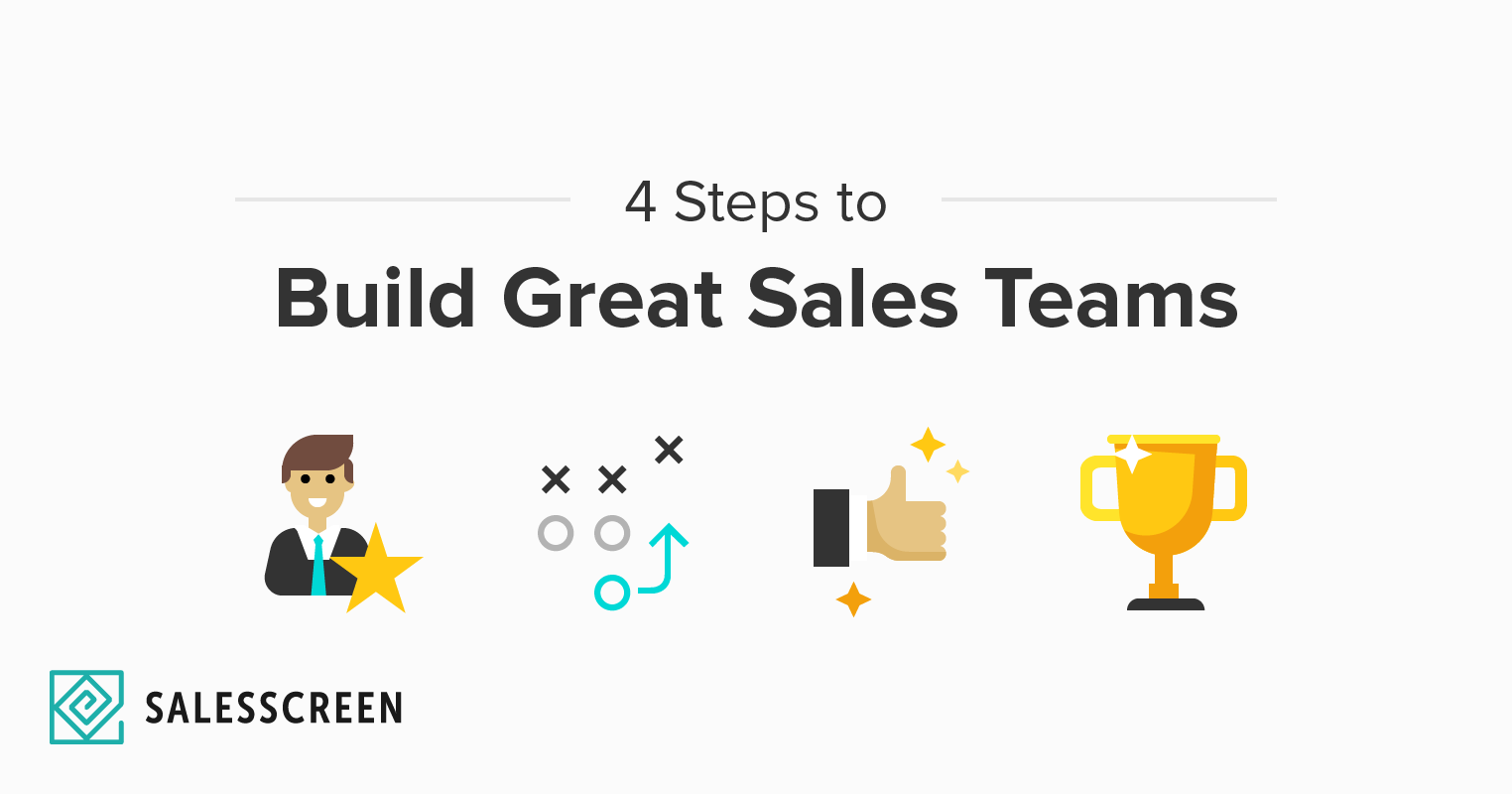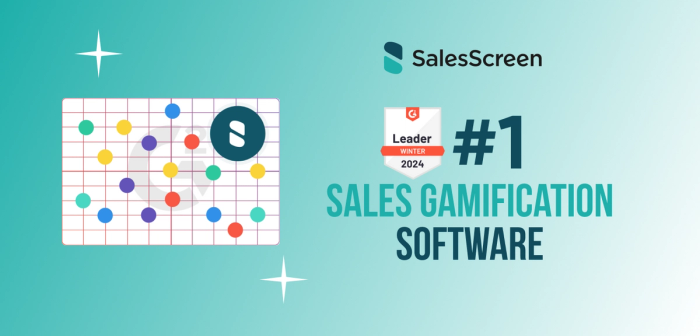Sales is the backbone of business. In order to survive, companies need to generate revenue by marketing and selling their products or services. That's a no-brainer. However, building great sales teams who can prospect, qualify and regularly hit or exceed their quotas is not so simple. So, we sat down with some of our customers to learn what it takes to build great sales teams who are engaged, motivated and consistently hitting targets. Based on their answers, here are 4 steps to build great sales teams.
1. Spot and hire talent
![]() In most sales organizations you will have 2 or 3 types of people: top performers, core performers and maybe some laggards. Generally speaking, the top performers are your rockstars. They are Type-A personalities who never quit, always achieve quota and seemingly have customers just falling out of the sky into their laps. Core performers generally make up about 80% of your sales force and consist of those folks who do well, usually achieve quota and could be categorized as the average sales rep. Your laggards are generally either rookies or folks who just don't feel a connection with your product or in some cases, folks who are just not cut out for a career in sales.
In most sales organizations you will have 2 or 3 types of people: top performers, core performers and maybe some laggards. Generally speaking, the top performers are your rockstars. They are Type-A personalities who never quit, always achieve quota and seemingly have customers just falling out of the sky into their laps. Core performers generally make up about 80% of your sales force and consist of those folks who do well, usually achieve quota and could be categorized as the average sales rep. Your laggards are generally either rookies or folks who just don't feel a connection with your product or in some cases, folks who are just not cut out for a career in sales.
So, how can you find and hire more of those top performers? First, a few things you need to know:
- Sales Rockstars are top players for a reason and they generally will only work for other rockstars.
- They are driven by big bonuses and recognition for being the best.
- You need to find rockstars who will be team players, not lone wolves. You want the ones who will collaborate and bring everyone else on the team up to top potential.
How can you spot and hire these folks? First off, their history will speak for itself and they will have a strong track record of over performing on targets. Their salary will also generally speak for itself. Simply put, rockstars who can predictably and repeatedly hit their targets will be highly sought after and well payed by those who bring them in.
In the interview, you can ask a few key questions:
- Are they achievers? If their first question is whether marketing provides enough leads, that may be a sign they are not pro-active enough.
- Ask them to sell your own product to you and to articulate why you should purchase this product over competitors.
- Will their previous customers recommend them? Ask for a recommendation from a few of their top accounts.
- Try to find out if they are team players by reaching out to their previous management. Bringing in a rockstar who is cocky and hard to work with can create tricky and difficult situations in the office.
Also, look for what they don't say:
- A truly great salesperson will have you 'sold' by the end of the interview. You will be smiling, happy and hoping they don't take another offer.
- If you did most of the talking and gave away your negotiation chips already, explaining exactly what the company is looking for and why you fell they are a great fit for the position, then you've played into their hands and this is probably the type of guy you'd like to hire.
There are lots of different ways to source top talent but the bottom line is that once you find a recruiting firm or agency who is capable of sending great salespeople to your interviews, you'll want to keep that relationship going strong.
2. Practice the fundamentals
 Just as with sports, fundamentals are key in sales. When I used to wrestle, we would spend hours each week doing basic takedowns and practicing basic escapes and reversals. The same drills over and over and over again. But by the end of the season, the results were hard to argue against… flashy moves may look cool but it's the basics that will win a match. The same with sales. You can practice all the flashy social selling and use all the sales tools in the world but if you can't nail down the basics of sales you're not going to close the big deals.
Just as with sports, fundamentals are key in sales. When I used to wrestle, we would spend hours each week doing basic takedowns and practicing basic escapes and reversals. The same drills over and over and over again. But by the end of the season, the results were hard to argue against… flashy moves may look cool but it's the basics that will win a match. The same with sales. You can practice all the flashy social selling and use all the sales tools in the world but if you can't nail down the basics of sales you're not going to close the big deals.
You need to know your product inside and out. You have to explain why it's perfect for your prospect and why it solves their specific pain points. If you can't answer questions about your product quickly and efficiently, your conversation is going to get awkward and disinterested very quickly.
Do your research. Know the client and their business model. Have the research done first so you're not browsing the client website during the call. This takes time but it's absolutely essential.
You need to study your sales playbook. You should have the dialogues down and you should be able to handle objections quickly. You need to be able to turn objections into conversations about value creation.
The best way to get new clients is referrals and if you're not willing to ask for referrals, you're missing out on a great source of leads. Getting referrals is another fundamental of sales; you have to get over the fear of asking.
You also have to master the basics of cold-calling. You can't be passive. You have to get on the phone, reach out to prospect, answer questions, qualify leads and prove that you can create value.
You have to** attend networking events** and conferences and tradeshows. You need to be face-to-face with people. It's been proven over and over again that in today's consumer-driven market, people buy from people they like and trust. Get out there and build the relationships.
3. Praise publicly and fix problems with grace
 In the military, we have a saying 'praise in public and punish in private'. In sales, it's slightly different because instead of punishing, you should be correcting… but publicly and with grace.
If problems need fixed, fix them publicly but politely. Don't let bad habits fester and grow throughout the organization. If you see a problem beginning to grow, you need to step in and coach. You need to establish what's incorrect, where the disconnect took place and how to correct it. This will create trust and confidence within your teams.
Transparency builds trust. By publicly acknowledging good results or making leadership-driven corrections, your people will know that they are part of a professional sales organization that values people. If they do something amazing, recognize them and celebrate their achievement. If they are struggling a bit, build teamwork by stepping in, addressing the problem, and making change.
One great way to build transparency and recognize publicly is by using a gamification platform, like SalesScreen that provides leaderboards, wall of fame, milestone celebrations, and can show individual, team and company KPI performance in real-time on TVs throughout your offices.
4. Create a culture of healthy competition around success
 As one customer told us, 'It's easy for sales managers to focus all of their efforts on the rockstars or the laggards and then forget to focus on the core performers… this can be fixed with fun competitions that drive teamwork, coaching and positive growth.'
As one customer told us, 'It's easy for sales managers to focus all of their efforts on the rockstars or the laggards and then forget to focus on the core performers… this can be fixed with fun competitions that drive teamwork, coaching and positive growth.'
In fact, research by Harvard University has proven that a majority of sales managers' focus should be on the core performers because they have all the ability and skills to become rockstars, they just need a little extra motivation to make it happen. While there are many ways to run sales contests, it's critical to remember to celebrate across the board. Compensation and prizes are important but to really build great sales teams, you need to bring everyone together around common goals.
Find ways to run competitions where everyone can win. Research has proven time and again that sales contests are not so much about the prize itself but about the fun of chasing a prize. Mix it up with some big competitions with big prizes but also run some regular small contests over a day, week or month that allow multiple people to win small things like a bottle of wine, movie tickets, chocolates or even just a cup of coffee. People appreciate being rewarded and recognized. For more ideas on creating inexpensive prizes, check out this list of 100 Inexpensive Ideas to Motivate Sales Teams.
Simple sales contests with a singular objective and simple rules generally work best. So, take the time to figure out what desires you want to motivate, set up a competition and have fun!










